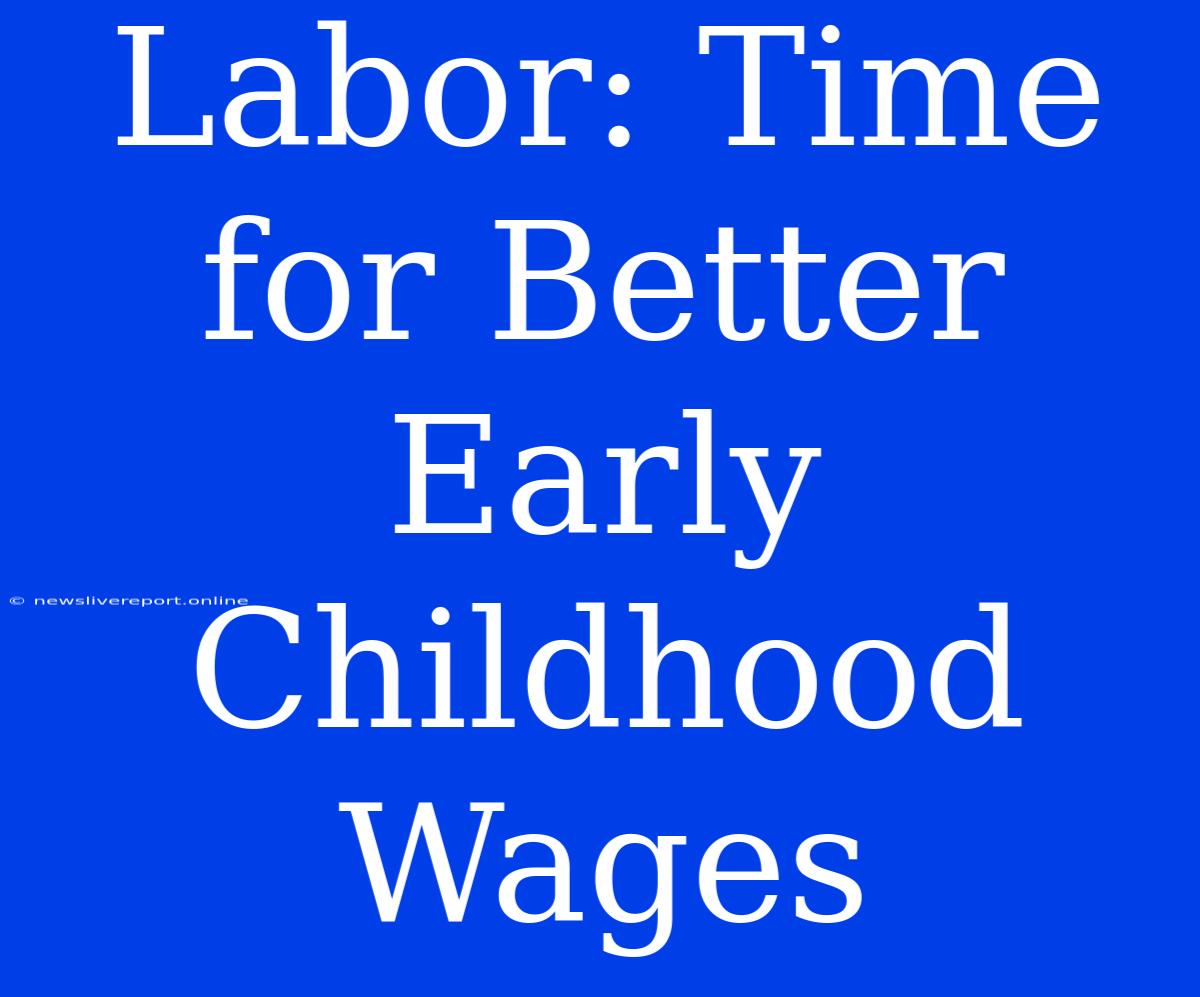Labor: Time for Better Early Childhood Wages
The early childhood workforce is the backbone of our society. They nurture and educate the minds of our youngest generation, laying the foundation for their future success. Yet, despite their critical role, these educators often face inadequate wages and limited professional development opportunities. This systemic issue must be addressed urgently, and improving wages for early childhood educators is essential for a stronger, more equitable future.
The Reality of Low Wages in Early Childhood
The reality is stark: early childhood educators are often paid significantly less than teachers in other grades. A recent study by the National Association for the Education of Young Children (NAEYC) found that the average annual salary for preschool teachers was $32,000, well below the national average for all teachers.
This low pay has a ripple effect:
- High turnover: Low wages make it difficult to retain qualified teachers, leading to high turnover rates. This creates instability and disrupts the learning process for children.
- Lack of qualified candidates: The low pay and lack of professional development opportunities make it difficult to attract and retain skilled educators, ultimately impacting the quality of early childhood education.
- Inadequate resources: With limited funding, early childhood programs often struggle to provide essential resources for teachers, such as professional development opportunities, quality materials, and adequate support staff.
Why Fair Wages Matter
Improving early childhood wages is not just about fairness, it's about investment:
- Improved quality of care: Better wages attract and retain high-quality educators, leading to a more enriching and stimulating learning environment for children.
- Increased access to early childhood education: Higher wages can help make early childhood education more affordable and accessible for families.
- Stronger economic growth: Investing in early childhood education has a positive impact on economic growth. By equipping children with the skills and knowledge they need to succeed, we can create a more productive workforce.
- Reducing poverty: Early childhood education can help break the cycle of poverty by providing children with a strong foundation for success.
The Path Forward: A Collaborative Effort
Improving wages for early childhood educators requires a multi-faceted approach:
- Increased public funding: We need to prioritize public funding for early childhood education, including wages for educators.
- Policy changes: Policymakers need to implement policies that support fair wages and professional development opportunities for early childhood educators.
- Employer investment: Early childhood program providers should make a commitment to investing in their workforce, including competitive salaries and professional development opportunities.
- Community support: Communities can support early childhood educators by advocating for increased funding and raising awareness about the importance of their work.
It is time to invest in our youngest generation. By recognizing the value of early childhood educators and supporting them with fair wages and professional development opportunities, we can build a stronger future for all children.

